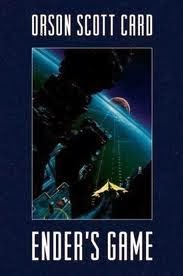On perusing the adult Fantasy shelves in my local bookshop, it seems to me that - depressingly - the market is still dominated by two things:
1. male authors (writing male characters), and
2. epic fantasy (either "the invaders are coming; to war, to war!" or, "the invaders have been and now everything's gone to hell, to hell!")
Now, while there are certainly some fine writers amongst those books, neither of these things particularly appeals to me, which is why I've generally read around the fringes of fantasy, rather that in its heartland.
(NOTE: I'm excluding the Urban Fantasy and Paranormal Romance subgenres here, where female writers and female protagonists are much more common).
As a girl, it's desperately frustrating for me that the heartland of fantasy is still dominated by men writing about war in some form or another. For a start, it only bolsters the cliched stereotype of fantasy fiction, and for seconds, there are so many more story tropes to explore in Fantasyland.
For instance, I hear that Mark Charan Newton's new series will be Holmesian detective fiction set in a Roman-type fantasy world. And then there's Patricia McKillip's work, which is sometiems referered to as "domestic fantasy", because she tells stories on a much more intimate scale. That's not to say she doesn't include "epic" aspects. In 'Song for the Basilisk', for example, the protagonist ends up bringing down a tyrant. The difference is, there aren't any great battles, because it's the protagonist's personal quest to right the wrongs done to his family, and he's a musician, not a warrior.
This brings me to my second thought, which is that in the Young Adult market, fantasy fiction is dominated by female writers, female protagonists, and intimate rather than epic stories. (Again, I'm excluding Paranormal Romance and Urban Fantasy here, and concentrating on "otherworld fantasy").
Once again, "epic" is present in novels such as Kristin Cashore's 'Fire', which concerns nations at war; in Leigh Bardugo's 'Shadow and Bone', which is in the "light vs dark" vein, and in many others. Yet without exception, these stories are more concerned with their character's path and growth as a result of the wider warring, as opposed to the warring itself.
Alright, alright, I know there are female fantasy writers out there, and some have even emerged from the shadows of their male counterparts. I also know that books with male protagonists can be perfectly rewarding for a girl to read. My issue is the on-going skew in the market. For every one female author, there are a dozen hairy blokes!
It seems to me that a pretty large trick is being missed here.
Which is why I've decided to start a revolution!
Let's get more girls writing the kind of fantasy fiction that appeals to girls (of all ages). Let's hold on to the female audience who fell in love with the YA fantasy novels of Kristin Cashore, Shannon Hale, Rachel Hartman, Megan Whalen Turner and SJ Maas, and give them books to love on the adult fantasy shelves. Let's throw wide the doors of Fantasyland and show the boys how much more there is to explore!
Who's with me?










